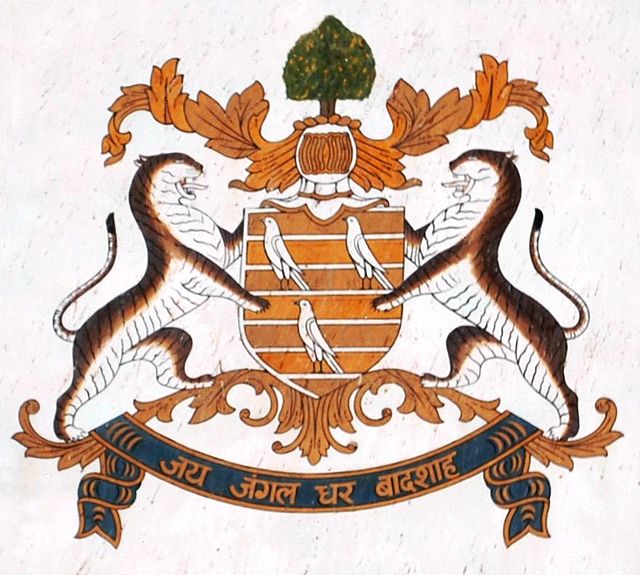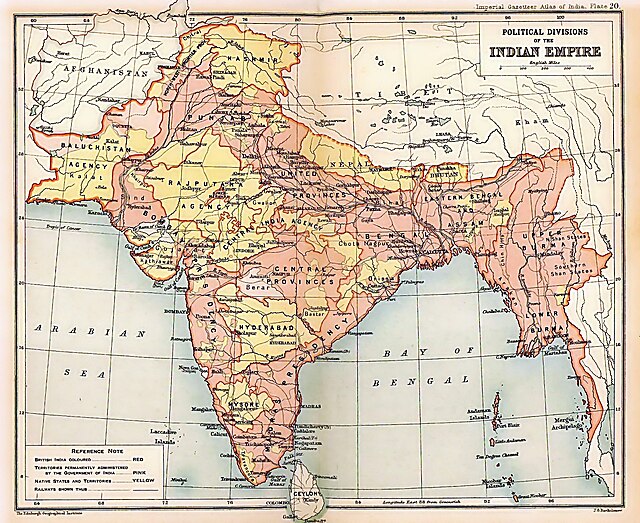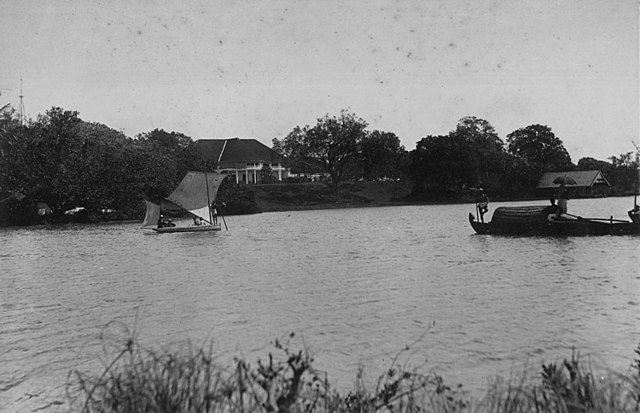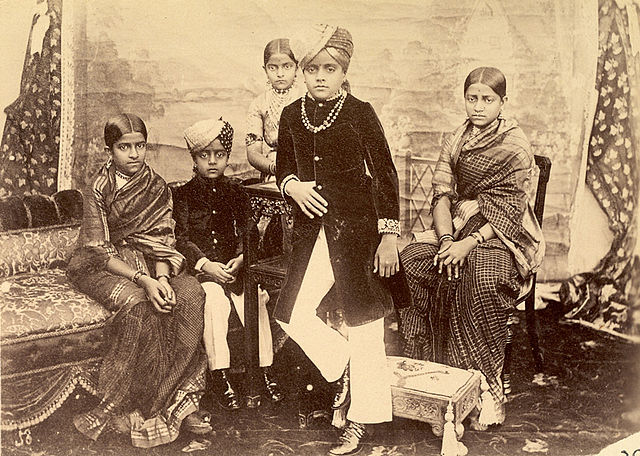Bikaner State was a princely state in the Rajputana from 1465 to 1947. The founder of the state, Rao Bika, was the eldest son of Rao Jodha, ruler of Jodhpur. Rao Bika chose to build his own kingdom instead of inheriting his father's. Bika defeated the Jat clans of Jangladesh along with his uncle Rao Kandhal and his adviser Vikramji Rajpurohit and founded his own kingdom. Its capital was the city of Bikaner in the northern area of present-day Rajasthan State in India. Karni Mata has been designated as the kuldevi of the royal family of Bikaner.
Bikaner State
Bikaner Laxmi Niwas Palace
Maharaja Anup Singh of Bikaner hunting elephants
Honorific insignia in gold offered to the Maharaja of Bikaner by the Mughal Emperor.
A princely state was a nominally sovereign entity of the British Indian Empire that was not directly governed by the British, but rather by an Indian ruler under a form of indirect rule, subject to a subsidiary alliance and the suzerainty or paramountcy of the British crown.
Political subdivisions of the Indian Empire in 1909 with British India (pink) and the princely states (yellow)
Sayajirao Gaekwad III, the maharaja of Baroda State.
An old image of the British Residency in the city of Quilon, Kerala
An 1895 group photograph of the eleven-year-old Krishnaraja Wadiyar IV, ruler of the princely state of Mysore in South India, with his brothers and sisters. In 1799, his grandfather, then aged five, had been granted dominion of Mysore by the British and forced into a subsidiary alliance. The British later directly governed the state between 1831 and 1881.








